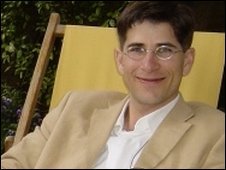![Alfred Russel Wallace [Pic: Natural History Museum]](/img/alfred_russel_wallace_pic_natural_history.jpg)
|
Alfred Russel Wallace developed a similar theory to Charles Darwin The life and works of the scientist who discovered evolution through natural selection at the same time as Darwin, are being celebrated in Cambridge. An exhibition will bring together Alfred Russel Wallace's surviving collections from the 19th century. Dr John van Wyhe, a Darwin expert at the University of Cambridge, calls Wallace "a fantastic scientist". A R Wallace: The Forgotten Evolutionist is at Cambridge University Museum of Zoology until 8 February 2010. Nature or nurture
Originally trained as a surveyor, Wallace's interest in science led him, in 1848, to leave England for Amazonian South America to begin a natural history collecting expedition, that took him to the Malay Archipelago. I can have no fear of having to suffer for the study of nature and the search for truth
Alfred Russel Wallace, 1861 It was the plants and animals encountered in this area that helped to clarify Wallace's thoughts on evolution and natural selection. Dr John van Wyhe, based at the University of Cambridge, and author of Darwin Online, maintains that Wallace is just as deserving as being the discoverer and author of that theory. He explained to BBC Radio Cambridgeshire: "On what is now known as 'Wallace's Line', he discovered that on one side of a strait you'd get some creatures that simply weren't present on the other side. Dr John van Wyhe is planning to create a Wallace Online website "The environments seemed pretty much the same - same trees, same jungle... it was puzzles like these that led him to conclude that evolution had happened." The theory Both Wallace and Darwin had been working independently on their evolutionary theories for a number of years when Wallace wrote to Darwin in 1858 - from Indonesia, where he was working in the field - detailing his own theory. This was a year before On the Origin of Species was published. |

 A self-educated scientist, the work of Alfred Wallace, and his own discovery of natural selection, have been largely overshadowed by his contemporary, Charles Darwin.
A self-educated scientist, the work of Alfred Wallace, and his own discovery of natural selection, have been largely overshadowed by his contemporary, Charles Darwin.



